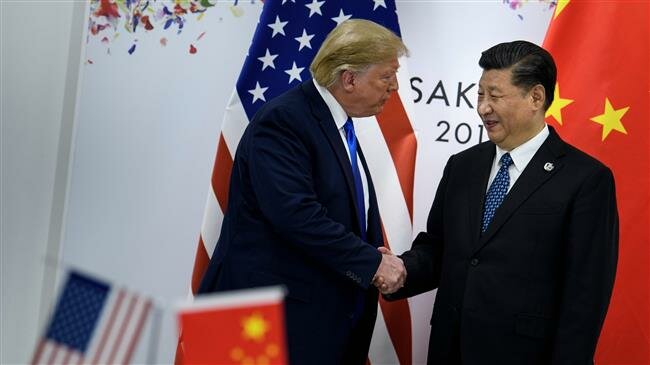 TEHRAN, Young Journalists Club (YJC) - China’s Commerce Ministry spokesman Gao Feng announced the condition in a regular media briefing on Thursday, almost a week after Chinese President Xi Jinping and his American counterpart, Donald Trump, met on the sidelines of the G20 summit in Osaka, Japan and agreed to re-launch stalled trade negotiations.
TEHRAN, Young Journalists Club (YJC) - China’s Commerce Ministry spokesman Gao Feng announced the condition in a regular media briefing on Thursday, almost a week after Chinese President Xi Jinping and his American counterpart, Donald Trump, met on the sidelines of the G20 summit in Osaka, Japan and agreed to re-launch stalled trade negotiations.
At the time, Trump agreed not to put tariffs on about $300 billion in additional Chinese imports and ease curbs on Chinese tech giant Huawei.
Gao also welcomed Trump’s decision not to slap new tariffs on Chinese goods.
Washington now has tariffs of 25 percent on $250 billion of Chinese goods, ranging from furniture to semiconductors.
The US and China, the world’s two-largest economies, are in the midst of a year-long trade war, which the International Monetary Fund (IMF) says could cut the global economic output by 0.5 percent, or about 455 billion dollars, next year.
Trump initiated that trade war with China last year, when he first imposed unusually heavy tariffs on imports from the country, seeking extensive structural changes from Beijing and alleging that it had engaged in intellectual property theft over many years, which China strongly denies.
Since then, the two countries have exchanged tariffs on more than 360 billion dollars in two-way trade.
The two sides have also unsuccessfully held several rounds of negotiations to settle the issue. The talks were stalled in May after the US officials accused Beijing of reneging on commitments made in the text of a pact negotiators had said was nearly finished. China has rejected the allegation.
Late last month, scores of Asia specialists, including former US diplomats and military officers, in a draft open letter, urged Trump to reconsider policies that “treat China as an enemy”, warning that that the belligerent approach could hurt US interests as well as the global economy.
Source: Presstv